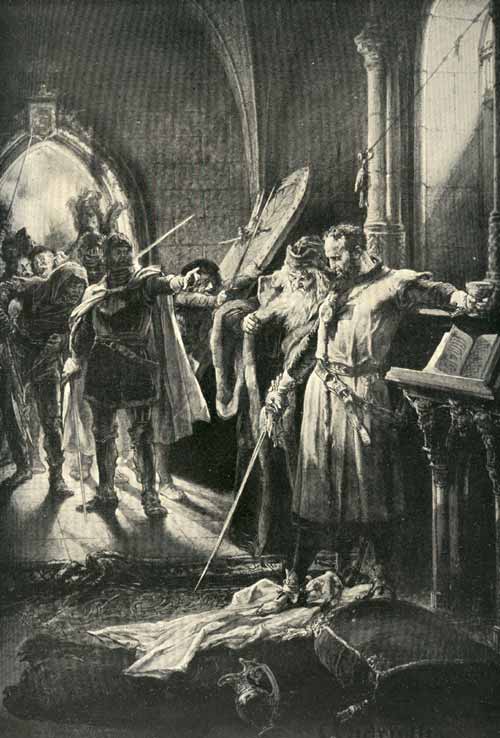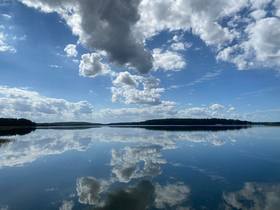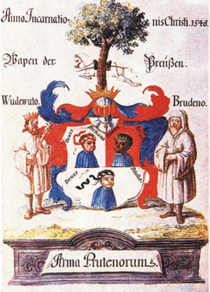The history of ancient Prusai
The short history of Prusai the European people, the ancient Prussians, exterminated in the 13th century by Germans. Christian Europe also participated in this genocide. This history and any other version is not published in Europe. The history of ancient Prusai
Dear Internauts,
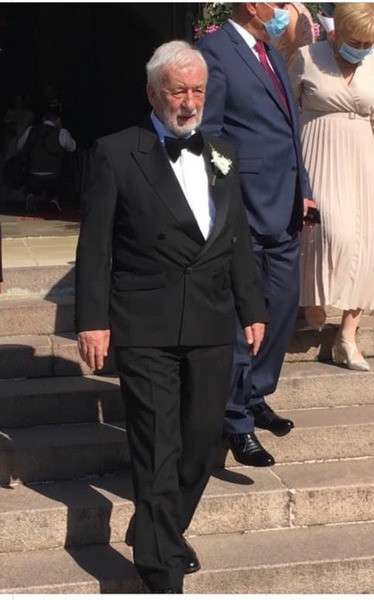
We want to thank you very much, for so many frequent visits of the www.prusowie.pl website .
Our gratitude we direct to the entire world. At this time, we can tell, that there is no corner of the world from which there was no traffic in visiting the website.
Assuming the page we never expected such a vast interest.
Our aim to draw attention to THE TRUTH, and give access for those who are interested in it. However, we could not imagin, that address would be so frequently visited.
Above all, the ultimate goal is the creation of a Museum of Ancient Prusai, with financed by the European Union.
This is tantamount to disseminating information about a missing people in the history of Europe.
Whole of Christian Europe let by the Papacy, cooperated in the XIII century extermination of Europe’s last free people, the Prusai.
Why did they do it ?
For very simple reason - in those days such a free group of people did not have a rights to exist.
It would be a precedent for the oppressed. The goals were also political.
That situation was not unlike the present New World Order with globalization at the forefront. For to days mankind this has already had tragic consequences.
So far we have not obtained cooperation even in dialogue. Europe refuses, hiding behind paragraphs, law and bureaucracy.
We invite you to our website.
Having a knowledge of Prusai, you support the revitalization and their memory.
ANCESTORS LEGACY - Full Cinematic Story Movie (4K) THE TEUTONIC ORDER

BOOK “WHERE YOU ARE , PRUSAI ?” ENGLISH TRANSLATION COMPLETED.
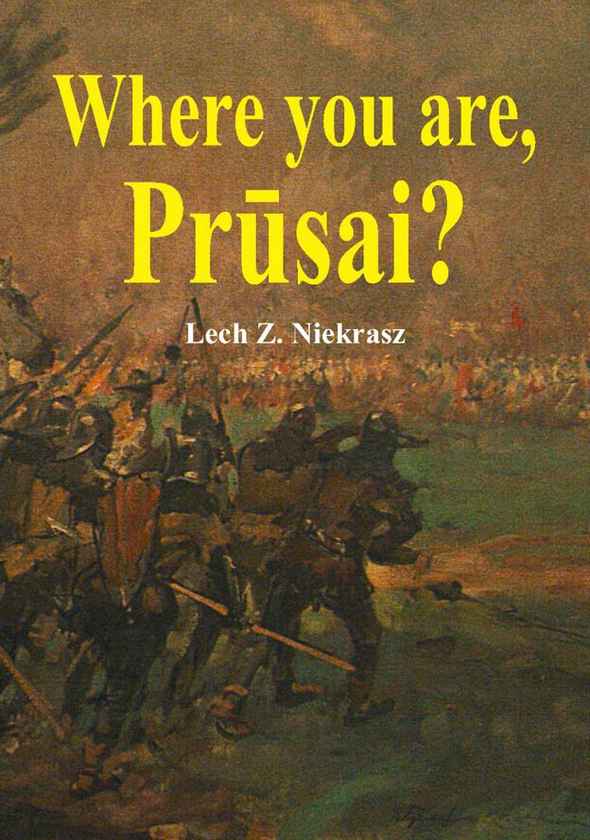
Download Book
Download Annex
ANNEX TO "WHERE YOU ARE, PRUSAI?"
CONTENT
Who were the Prusai ? 01
History 10
Kurpii genesis 11
Prusian Babas-facts and myths 17
Archeology 21
Arms and the way of fight 28
Confabulation of St Adalbert mission 31
Europe jointly against Prusia 34
The Prusai enslavement 38
The III-rd Prusai uprising 1397-1466 51
Family Tree of the English Royal House 69
Germans judgement 72
The Prusai language 73
Did Prusai write ? 80
What has happened to Prusai? 81
The Prusai Heroes 85
Culture versus civilization 87
Forest sources of wealth 89
Prusian double broken cross 90
The Prus heraldry 93
The Prus armorial 94
Coat of arms Prus I 117
Coat of arms Prus II 125
Coat of arms Prus III 128
Unknown coat of arms 132
Coat of arms Prus 144

Download Book
Download Annex
FOREWORD
It is worthwhile spending a moment to consider the problem which emerged after the conclusion of the second world war. It concerns the naming of the part of the former territory of Prusia, which was incorporated into post-war Poland. In view of the unfortunate traditions of German Prussianism and the associated worst possible memories, nobody wished to call this territory Prussia although it was to a substantial degree still inhabited by the indigenous descendants of the ancient Prusai, who saw no need to leave the land of their forefathers and talked of themselves us “ We are not Germans but we are also not Poles, we are locals”. After the war Stalin carried out another successive crime by ordering the deportation to Germany tens of thousands the descendants of the Prus people from the territory annexed by the USSR, the so called Kaliningrad region. A similar fate awaited the inhabitants of the territory incorporated into the Peoples Poland with the only difference that because of the discrimination against them the “locals” felt obliged to leave their fatherland and emigrate to Germany. This was also a crime on the living body of the population. Accordingly these lands, on which the Prus peoples lived on for over a thousand years before the appearance of the Slavs on the territory of to-days Poland, now carry the names of Warmia and Masuria.
It is meanwhile known that, as a result of the efforts undertaken by the Teutonic Order in the XIII century the victims of the invasions, which bore all the hallmarks of racial extermination, some 50% of the population of the then Prus lands perished, and the further 10% escaped the Teutonic sword by fleeing to neighbouring Poland or to Lithuania or Rus. The Teutonic Knights also placed their subject Prusai in the first line of battle in their wars of conquest, sometimes forcing them to carry out the most bloody work. From the year 1331 comes the information that during the battle of Plowce the Prusai refused to carry out the Knights orders to murder the Polish prisoners taken captive.
According to available sources the Order forced 5 thousand lightly armed Prusai to appear in 1410 on the fields of Grunwald who did not show the required fighting spirit, and many of whom sympathised with the Polish Crown. Their help to King Vladislav Jagiello is still little known, who due to them disposed of information about the location of the Order’s forces and because of this could locate his Polish and Lithuanian armies in the most advantagous positions. The attention of Polish historians by passed the part played by the Prusai Culm Standard brigade, whose influence on the result of the battle of Grunwald was thought by the German historians to be reason for the defeat of the Teutonic Order. The pages of history do not dwell on the fact that after Grunwald Prusai knights captured the Knights castles to turn them over to the Crown.
The Prusai had to pay a very high price for their part in the Thirteen Years War (1454-1466) where they also stood on the side of the Polish Crown. Their part in this was however dismissed by the Polish side. There were also incidents which indicated a negative attitude for the Prusai. An example of this was the attack by Piotr Dunin, the commander of the Crown forces, on the cavalry unit of 60 horsemen sent to help the Polish King, which was forced to return.
The Polish side helped in the bloody surpression of the Sambian revolt of Prusai peasantry in 1525, supporting the German side.
Fatal in its result, not only for the Prusai but also for the Crown, was the policy of the Polish King towards the Teutonic Knights and their political descendants. The greatest mistake, after the bringing of the Order to Poland was the Prussian Homage which was paid to the Polish King Sigismund the Old from the last grand master of the Order, Albrecht von Hohenzollern in 1525. He stood at the head of a German enclave, or subjects de jure to the Polish Crown, the so-called Ducal Prussia. From this grew German Prussianism which grew to start the process of the partitions of the first Polish Commonwealth. ....................................................
In December 1943, during the Tehran Conference, Winston Churchill proposed a permanent separation of Teutonic Prussia from Germany and harsh treatment of the inhabitants of the Prussia. There was no mention of indigenous ancient Prusians. Further he said: "other Germans are not so savage and cruel". Saying: "let them live in tolerable conditions. As one generation passes completely change its nature. Southern Germany is not aggressive enough to start a new war. We have to make sure that the oblivion of Prussia comes out in favor of them." With these phrases is obvious that after the war, there remained on their land indigenous Prusians residents who were treated like Germans and not as native Prusians. In other words one can conclude from the above statements that German settlers genetic descendants of the Teutonic Knights are Brandenburgians with a criminal past on the ancient Prusai people.
From the above reasons the land was purified from the indigenous people of Prusai and settled by other resettled people.
It escaped the attention that the majority of the descendants Prusai people live in Poland and their number exceeds two million of them.
They participated in all fields of Polish life eg. social, cultural and military and did not receive any recognition. The below offered book is a first of its kind where unfalsified knowledge, their history in short with illustrations is compiled for the reader. Therefore you are invited to read it.
 www.Prusowie.pl - polski
www.Prusowie.pl - polski